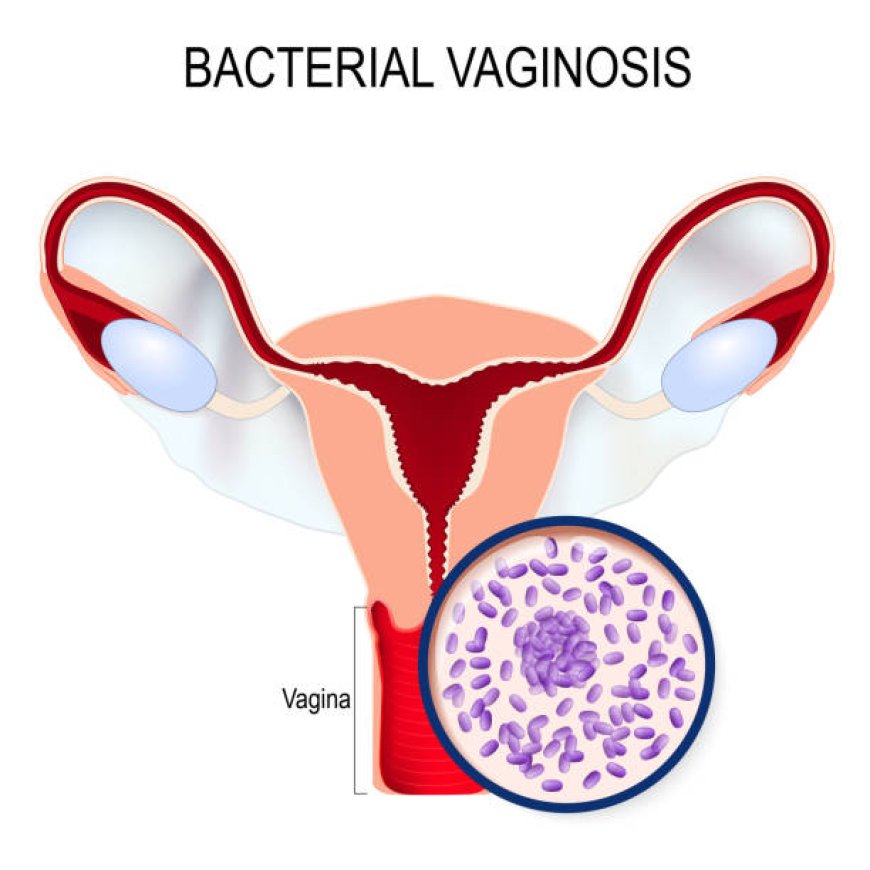"Bacterial Vaginosis: Causes, Symptoms, and Treatment | Your Ultimate Guide"
Learn about bacterial vaginosis, a common vaginal infection caused by an imbalance of bacteria. Discover its symptoms and effective treatments.

As a woman, it's important to take care of your intimate health, but sometimes things can get out of balance. One common issue is bacterial vaginosis, a condition that affects many women at some point in their lives. In this article, we'll explore what bacterial vaginosis is, what causes it, and how to treat and prevent it.
Bacterial vaginosis, or BV for short, is a condition that occurs when the balance of bacteria in the vagina is disrupted. Normally, the vagina has a delicate balance of bacteria, with lactobacilli being the dominant type. These bacteria help to keep the pH of the vagina acidic, which prevents the growth of harmful bacteria and fungi.
When something upsets this delicate balance, however, harmful bacteria can grow and cause symptoms. This is what happens in bacterial vaginosis. Instead of the usual mix of bacteria, the vagina becomes overrun with harmful bacteria, leading to symptoms such as discharge, itching, and odor.
What are the symptoms of bacterial vaginosis?
The symptoms of bacterial vaginosis can vary from woman to woman, but the most common ones include:
- Thin, gray, or white vaginal discharge
- Strong fishy odor, especially after sex
- Itching or burning in the vagina
- Pain or discomfort during sex
- Burning or pain during urination
If you're experiencing any of these symptoms, it's important to see a healthcare provider to get an accurate diagnosis and treatment.
What causes bacterial vaginosis?
The exact cause of bacterial vaginosis is not fully understood, but there are several factors that can increase your risk of developing it. These include:
- Sexual activity: Having sex with a new partner, multiple partners, or a partner who has BV can increase your risk of developing the condition.
- Antibiotics: Taking antibiotics can disrupt the balance of bacteria in the vagina and increase your risk of developing BV.
- Douching: Douching can upset the delicate balance of bacteria in the vagina and increase your risk of developing BV.
- Hormonal changes: Changes in hormone levels during menstruation, pregnancy, or menopause can increase your risk of developing BV.
How is bacterial vaginosis diagnosed?
To diagnose bacterial vaginosis, a healthcare provider will typically perform a pelvic exam and take a sample of vaginal discharge. This sample will be examined under a microscope or sent to a lab for testing. In some cases, a pH test or whiff test may also be performed.
How is bacterial vaginosis treated?
The good news is that bacterial vaginosis is treatable with antibiotics. Your healthcare provider will prescribe an antibiotic that is safe for you to take. It's important to take the full course of antibiotics, even if your symptoms improve before you finish the medication.
In addition to antibiotics, there are some home remedies that may help to relieve symptoms of BV. These include:
- Probiotics: Eating foods or taking supplements that contain probiotics may help to restore the balance of bacteria in the vagina.
- Tea tree oil: Adding a few drops of tea tree oil to your bath water or using a tea tree oil suppository may help to relieve itching and discomfort.
- Apple cider vinegar: Adding a cup of apple cider vinegar to your bath water may help to restore the pH balance of the vagina.
It's important to talk to your healthcare provider before trying any home remedies to make sure they are safe and effective.
How can bacterial vaginosis be prevented?
There are several steps you can take to reduce your risk of developing bacterial vaginosis. These include:
- Practice safe sex: staying with your legal husband can help to reduce your risk of developing BV.
- Don't douche: Douching can upset the delicate balance of bacteria in the vagina and increase your risk of developing BV. It's best to avoid douching altogether.
· Avoid using scented products: Using scented soaps, bubble baths, or sprays in the genital area can disrupt the natural pH balance of the vagina and increase your risk of developing BV. Stick to mild, unscented products.
· Wear breathable clothing: Tight-fitting clothing, especially synthetic materials like nylon or spandex, can trap moisture and increase your risk of developing BV. Opt for loose-fitting, breathable cotton underwear and clothing.
· Practice good hygiene: Keeping the genital area clean and dry can help to prevent the growth of harmful bacteria. Be sure to wipe from front to back after using the bathroom, and avoid wearing wet clothing for long periods of time.
If left untreated, bacterial vaginosis can lead to more serious health issues, such as pelvic inflammatory disease, which can cause infertility. Additionally, having BV during pregnancy can increase the risk of preterm labor and delivery.
It's important to note that while BV is not considered a sexually transmitted infection, it can be passed between sexual partners. If you have BV, it's important to inform your sexual partners so they can be tested and treated if necessary.
If you suspect you may have BV, it's important to see a healthcare provider for an accurate diagnosis and treatment. Your healthcare provider may prescribe antibiotics, such as metronidazole or clindamycin, to help eliminate the overgrowth of harmful bacteria. It's important to take the entire course of antibiotics as prescribed, even if your symptoms improve before the medication is finished.
In addition to antibiotics, your healthcare provider may recommend probiotics, which can help to restore the natural balance of bacteria in the vagina. Probiotics can be taken orally or applied topically, depending on the formulation.
It's important to avoid using over-the-counter remedies for BV, such as douches or creams, as these can actually make the condition worse by disrupting the natural pH balance of the vagina.
In some cases, BV may recur even after treatment. Your healthcare provider may recommend regular follow-up appointments to monitor your symptoms and ensure that the BV is completely cleared.
In summary, bacterial vaginosis is a common condition that affects many women. While it can be uncomfortable and embarrassing, it's important to seek treatment to prevent more serious health issues. By practicing good hygiene, avoiding douching and scented products, and practicing safe sex, you can reduce your risk of developing BV and maintain good intimate health. If you suspect you may have BV, be sure to see a healthcare provider for an accurate diagnosis and treatment.
What's Your Reaction?









































